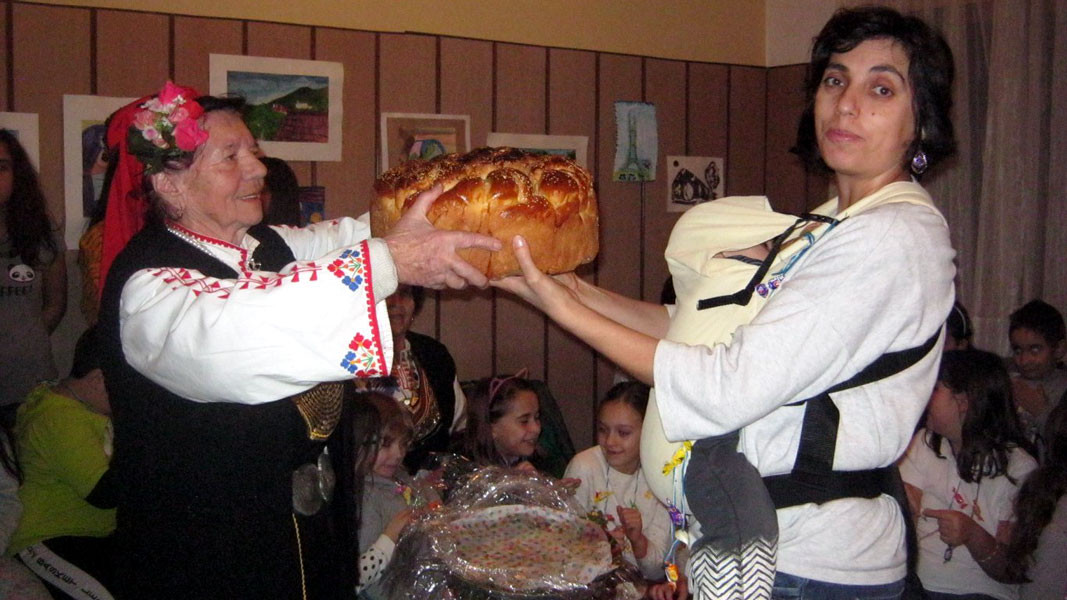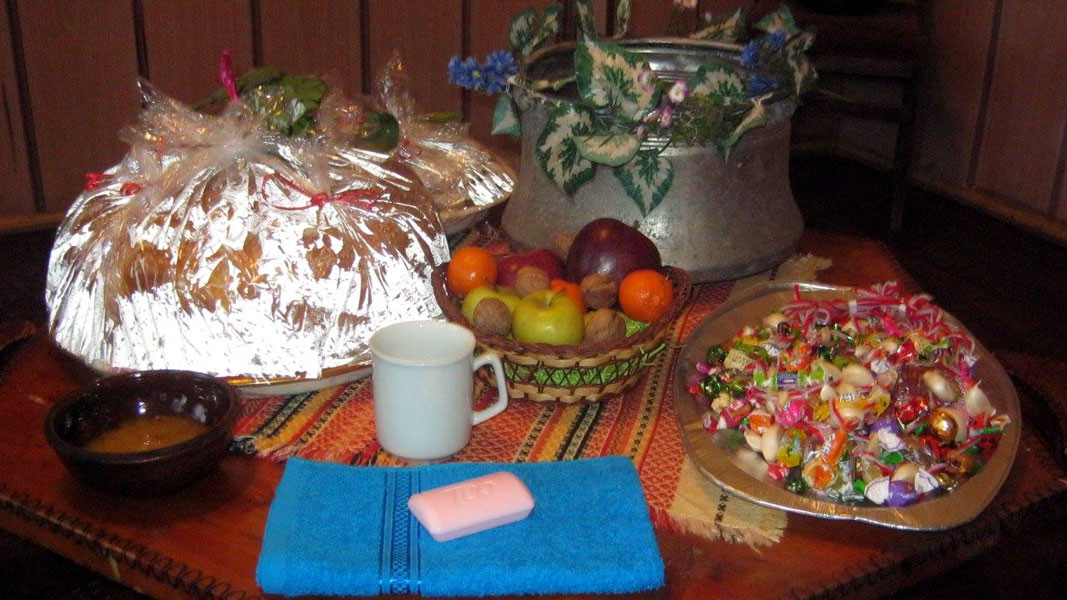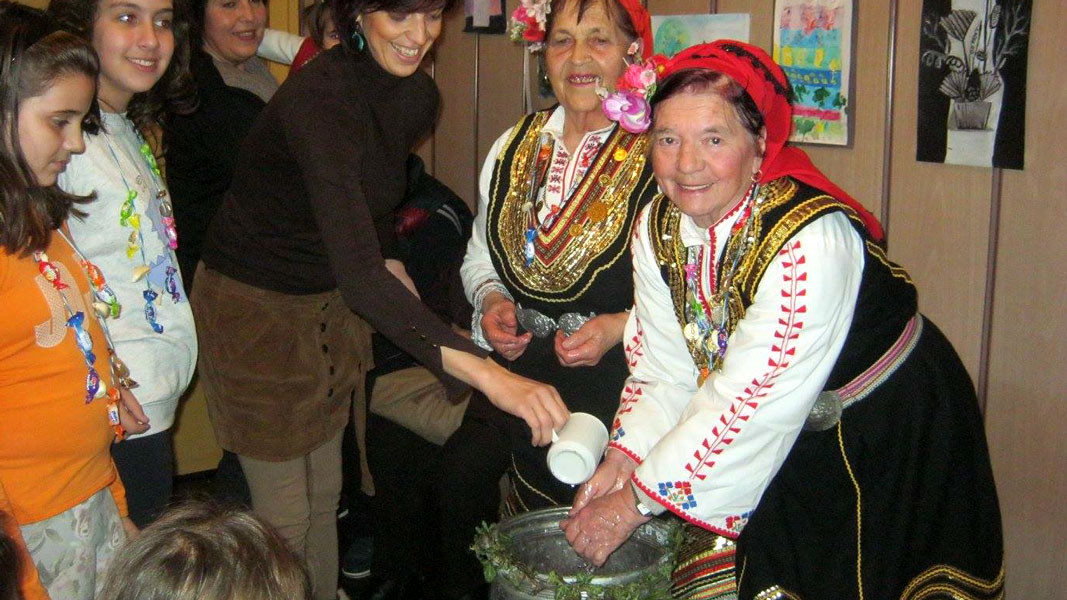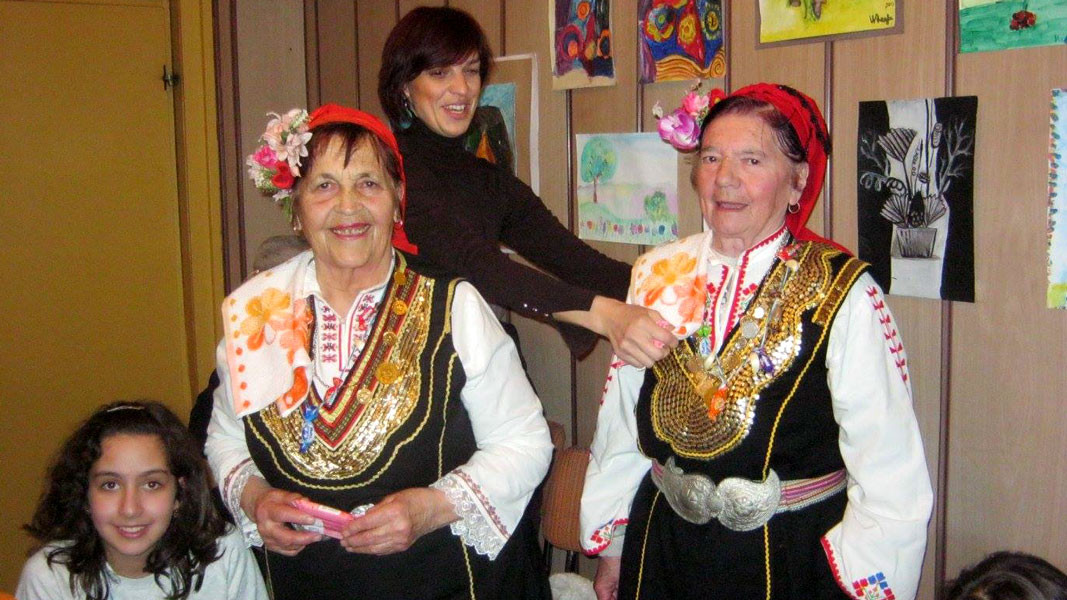Just like other holidays, Babinden is celebrated on two different dates – January 8th, according to the Gregorian calendar and on January 21st, according to the Julian calendar. According to traditional beliefs, it is the last one of the triad of holidays, associated with water and ritual bathing: Epiphany, Ivanovden, Babinden. Unlike the first two, which are major holidays in both the church and folk calendar, Babinden is an entirely pagan ritual.
It is a curious fact that when the Bulgarian Orthodox Church adopted the Gregorian calendar and church holidays were shifted by 13 days, the same thing happened to Babinden (Midwife’s Day). In some places people started to mark it on the new date, but in other places they kept to the old one, just like the women from the village of Lozen. Situated at the foot of the Lozen Mountain, the village is about 17 km away from the capital city of Sofia. People here have preserved ancient customs and Babinden is one of them, although some elements have been modernized. Today, rituals are performed at the community center, where young mothers, elderly women and children gather.

Most of the participants are participants in the folklore group led by famous Bulgarian folk singer Snezhka Borisova. Here is what she told us about Babinden marked in her home village:
“This is a very nice holiday that shows respect to midwives and their work. As long as I remember Babinden has been celebrated in Lozen on the old date. Traditionally, young mothers who gave birth in the previous year pour water so the midwife can wash her hands and give her a towel and soap as a gift. She, in turn, gives a necklace to the child as the necklace contains red candy, garlic and usually a coin.

People invite the midwife to their homes as young women have prepared pies and sweets. There are songs and dances as young women and elderly women dance together and the celebration becomes a big fun. To this day, only women participate in the custom. If a man decides to join, he is welcome, but it is known that this is a women's holiday.”

Midwives in Lozen used to visit households with young children, in order to give them the colorful necklaces they made themselves. Now these amulets of health and luck are being made at the community center. Stringing candy and garlic on a blue and white or red and white threads is a local tradition. Elsewhere, midwives usually bring butter and honey, as well as wool and pastry… In Lozen, after the midwife’s hands are washed, she picks up stems of geranium, sinks them into some water and places them over the heads of children saying: “Let the number of water droplets be the number of children in this family!"

Snezhka Borisova also remembers many funny moments related to Babinden marked in the National Folklore Ensemble "Philip Kutev", which she was part of.
“When I was working in the Philip Kutev ensemble, there was a show called ‘Babinden’, presenting the way the day is marked in the Thrace folklore region. There, a man tries to interfere with the holiday, but women start pulling him around until he remains wearing only his underwear. In Lozen, I have never seen men chased or made fun of on Babinden but I know that such traditions exist elsewhere in Bulgaria. We used to celebrate the holiday together with the other female singers in the ensemble. It was also very interesting to me to hear memories from the past from older singers. I know that Verka Siderova was very active when they celebrated Babinden in the ensemble, making a real show. These women, the first singers, carried folklore in their hearts, together with the traditions and customs of their hometowns. I am convinced that this is something that cannot be learned. You have to go through the custom yourself and experience it personally. I am lucky that I was born in Lozen, where traditions are preserved to this day and I am happy I grew up with them.”

English: Alexander Markov
Photos: private libraryOne month after the dramatic events in Bat Yam , where thirteen Bulgarian artists were forced to take shelter in a bomb bunker during Iran’s missile attack on Israel, the organisers and participants of the international festival Bulgarian Soul in the..
It has been a sad summer we have been having. With temperatures soaring to over 40°C, not forgetting human carelessness and irresponsibility, hundreds of wildfires have been raging across the country. For a second week firefighters, volunteers and the..
Dyeing with the colors of nature – this is the topic that the person in today's story has chosen to explore through ethnographic approach. She is a young Bulgarian, who arrived in the USA when she was a child . In..
It has been a sad summer we have been having. With temperatures soaring to over 40°C, not forgetting human carelessness and irresponsibility, hundreds..
One month after the dramatic events in Bat Yam , where thirteen Bulgarian artists were forced to take shelter in a bomb bunker during Iran’s missile..

+359 2 9336 661
